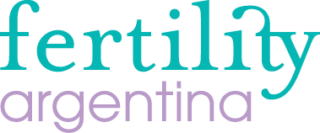SERVICES
EGG DONATION
The use of donor oocytes in assisted reproduction techniques (ART) is becoming increasingly popular. Infertile patients with poor ovarian reserve, history of poor ovarian response to stimulation, those with multiple IVF failures or advanced maternal age, are among the patients commonly treated with donor eggs, in order to improve their chances of becoming pregnant.
In 1993, Cegyr started running an egg donor program. The aim of this program is to allow getting pregnant to hundreds of women that every year would like to make true this dream but cannot use their own oocytes. Egg donation is an alternative that offers best pregnancy rates with low genetic disorders chances (lower miscarriage rate and lower chromosomal abnormalities than pregnancies with own eggs coming from older women).
The advantages of doing it in with Dr. Glujovsky at CEGYR, Argentina
Most programs in United States use one oocyte donor for one recipient. Our program shares the donor´s fresh egg cohort among multiple recipients (shared egg donor program), allowing for a good pregnancy rate (60-65%) with a reduction of their waiting period and reducing costs since donor costs are shared by the various recipients, making this therapy affordable for most patients. Besides, as Argentine currency was devaluated in December 2001 and again in 2012, costs for foreign patients are still lower.
Egg donor program of our clinic is one of the most popular, not only in Argentina, but also in Latin America. Every year more than 550 women receive donated oocytes, and more than 20% of them come from abroad (mainly from USA, Canada, Australia, New Zealand, Uruguay, Chile, Sweden, Netherlands, Spain, Mexico, Brazil and Peru).
Professionals working in Cegyr make it not only a high level medicine institution, but also guarantee patients a positive, professional experience and a safe program as those running in USA. Cegyr has an ISO 9001 certification of quality, and follows the keys principles of the ACT (assisted conception taskforce).
In 2005, Dr. Demián Glujovsky started coordinating the egg donor program of Cegyr. His background in gynecology andobstetrics with a specialization in reproductive medicine, and his studies in epidemiology, biostatistics and public health (master of clinical and health care effectiveness) allowed him to run this program at Cegyr, an internationally-recognized high level fertility center that was founded in 1983.
Our objective is the same as yours: to get a healthy baby as soon and as simple as possible, with the highest safety (infectious and genetics) parameters. We will analyze your case and will build a customized plan for you. The difference with others is not only based on what we do but, also, and not less important, on how we do it. Our criteria are: highest pregnancy rates, only one trip to Buenos Aires, no waiting list, in a program with cosmopolitan donors and with a direct patient-to-doctor communication.
Egg Donor Screening
All our voluntary egg donors are between 21 and 32 years old and they are screened following most of the American Society of Reproductive Medicine (ASRM) guidelines. Their medical personal and familial history is assessed by a geneticist. They have an infectious (HIV, hepatitis B and C and syphilis) and genetic (karyotype and a large panel a genetic diseases using Recombine) screening. If the man who provides the sperm sample wants to be evaluated with Recombine too, we can match the donor’s and the man’s results to avoid allocating them oocytes coming from a donor that shares any of the genetic mutations with the man (to avoid a genetic disease in the baby). They also are evaluated by a psychologist.
Donor egg recipient
It is also important to do a complete evaluation of the recipient couple in order to minimize risks and optimize chances of getting pregnant. Age limit: women up to 50 years old. Screening checklist is the following (based in ASRM guidelines):

All patients:
- Type & Rh Factor
- HIV 1 – 2
- HBsAg
- HCV core antibody
- RPR (syphilis)
- Rubella IgG
- Vitamin D level
- PAP smear
- Baseline Ultrasound
- Hysterosalpingography or Hysteroscopy
- GC and Chlamydia culture
Patients over 40 years old:
- CBC
- Hepatogram
- LDL cholesterol – HDL cholesterol – triglicerids
- Glycemia (fasting)
- EKG
- Mammography
Partner:
- Type & Rh Factor
- HIV1 – 2
- HBsAg
- HCVcore antibody
- RPR(syphilis)
- Semen analysis (with Kruger morphology)
- Karyotypeand Cystic fibrosis mutations (or a large genetic panel to evaluate more genetic mutations)
Average time for a recipient is 2 months. Every woman will receive at least six mature eggs (average is 8-9). This means that no risks of a hypothetical poor donor ovarian response exist for the recipient. Besides, we guarantee to transfer in blastocyst stage, increasing a lot the clinical pregnancy rate.
SUCCESS RATES
Clinical pregnancy rate is around 60-65%, which is similar to most in USA and is higher than those published by the European Society of Human Reproductive and Endocrinology (ESHRE) and Latin-American registry (Registro Latinoamericano de Reproducción Asistida). It is important to emphasize that, unlike treatments using non-donor eggs, in egg donation, recipient age does not affect success rates, and clinical pregnancy rate is steady in women below 50 years old. It is also remarkable that egg donation is an effective and safe therapeutic alternative when it is done in a protocolled practice, following international statements based on clinical evidence.
Why do we have so good statistics?
We are proud of having the largest embryology lab in Latin America, using the best culture media and having as many incubators as it is needed. We guarantee that a minimum of 6 mature eggs (the average is 8-9) will be allocated to each recipient. And we also guarantee that all of them will have the transfer of at least one blastocyst (day 5 embryo). There is good quality scientific evidence supporting the blastocyst stage embryo transfer which raises the success rates. In case that, for any reason, the donor has less than 6 mature eggs or there are no blastocysts to transfer, we will choose another donor with no additional cost. Finally, around 85% have more than one blastocyst and can freeze them for a second attempt.
Contact Dr. Glujovsky now!


